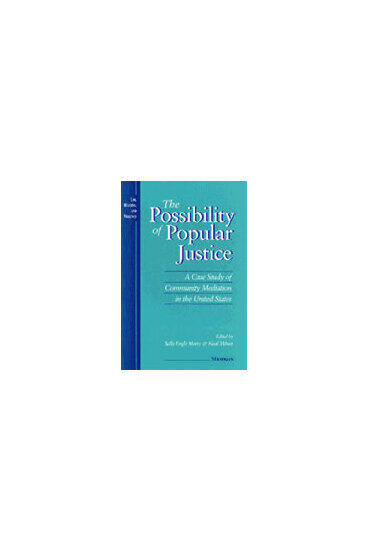The Possibility of Popular Justice
A Case Study of Community Mediation in the United States
Can popular justice ever be a real alternative to the violence and coercion of state law?
Description
"The Possibility of Popular Justice is essential reading for scholars and practitioners of community mediation and should be very high on the list of anyone seriously concerned with dispute resolution in general. The book offers many rewards for the advanced student of law and society studies." --Law and Politics Book Review
"These immensely important articles--fifteen in all--take several academic perspectives on the [San Francisco Community Boards] program's diverse history, impact, and implications for 'popular justice.' These articles will richly inform the program, polemical, and political perspectives of anyone working on 'alternative programs' of any sort." -- IARCA Journal
"Few collections are so well integrated, analytically penetrating, or as readable as this fascinating account. It is a 'must read' for anyone interested in community mediation." --William M. O'Barr, Duke University
"You do not have to be involved in mediation to appreciate this book. The authors use the case as a launching pad to evaluate the possibilities and 'impossibilities' of building community in complex urban areas and pursuing popular justice in the shadow of state law." --Deborah M. Kolb, Harvard Law School and Simmons College
Sally Engle Merry is Professor of Anthropology, Wellesley College. Neal Milner is Professor of Political Science and Director of the Program on Conflict Resolution, University of Hawaii.
Sally Engle Merry is Professor of Anthropology, Wellesley College.
Neal Milner is Professor of Political Science and Director of the Program on Conflict Resolution, University of Hawaii.

